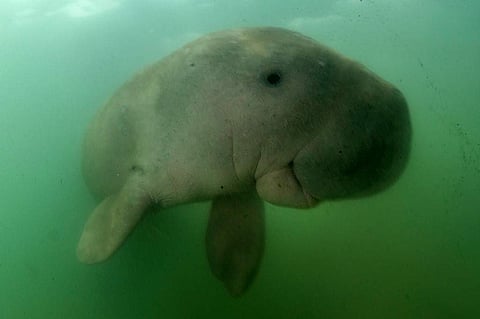

CHENNAI: The country's first 'Dugong Conservation Reserve' has been notified in Tamil Nadu, the state government said on Wednesday.
The move was aimed at conserving the endangered species as it would help protect and improve marine fauna, it said. The reserve has been notified in Palk Bay.
The development follows the announcement made by the government in the Assembly in September 2021 that in order to protect the Dugong species and its marine habitats, a conservation reserve would be established in the Palk Bay region off the coast of Tamil Nadu.
According to an official release, Dugongs are the largest herbivorous marine mammals which primarily thrive on seagrass beds.
Conservation of these Dugongs would help protect and improve the seagrass beds which are also the breeding and feeding grounds for many fishes and marine fauna.
Tamil Nadu government after holding extensive consultations with coastal communities including local fishermen, came out with the notification, the release said.
"The notification of India's first Dugong Conservation Reserve in Palk Bay is a proud moment for Tamil Nadu and it is a great milestone in the marine conservation history of the country," the release said.
The coastal communities living along Palk Bay understand the need to conserve Dugongs and they have been cooperating with the forest department in the conservation efforts.
The government also clarified that the notification of the Conservation reserve would not cause any new restrictions to the communities and focuses on participation and cooperation from the communities towards conservation efforts.
Dugongs are protected under Schedule 1 of the Wild Life (Protection) Act, 1972 as their population was on the decline due to habitat loss.
There were only about 240 such Dugongs estimated to be present in the country and a majority of them were found in the Palk Bay area, the release said.